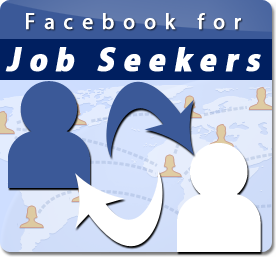Why should you worry about social media- Facebook, Twitter, LinkedIn- when there are more important things to worry about; like dealing with the already crowded job market, writing a resume that gets you selected for interview? Actually, your Facebook profile activity can indirectly affect your chances of getting a job. Don’t think so?
According to a survey conducted from February 9 to March 2, 2012 by CareerBuilder, a US based job site, 37% employers’ research job candidates on social media before deciding on who gets the job. 15% of Employers who do not follow the social media practice said it’s because the company prohibits the practice, while 11% said they plan to adapt to the trend of social research on job prospects. The survey found that 65% employers who follow this method of candidate evaluation use facebook to research candidates, 63% use LinkedIn and only 16% use Twitter.
Table of Contents
 Why are they Using Social media Network to research job prospects?
Why are they Using Social media Network to research job prospects?
When asked why they decide to use this method to choose who gets the job, this was their responses:
65% – We want to see if the job seeker presents himself or herself professionally.
51% – We want to see if the candidate is a good fit for our company culture
45% – We want to learn more about his or her qualifications
Some said they want to see if the candidate is well rounded and to look for reasons not to hire the candidate.
What have they discovered researching candidates on social media?
On what they find on candidates research and how it affected their decisions, this was their responses with negative signals:
50% – We didn’t offer candidates the job if we found provocative or inappropriate photos and information on the profile.
45% – We have decided not to hire someone because of information about him or her drinking or using drugs.
Others – We choose not to hire the candidate because the profile showed bad communication skills, bad mouthing previous employers, making discriminatory comments related to race, gender or religion and lying about qualifications.
There is good news as well. Employers aren’t just screening your profile to find reasons to not hire you; they are also looking for information that will possibly give you an advantage.
29% – We have found something positive that have caused us to offer the candidate the job.
Common reasons
- We got a good feel for the candidates’ personality
- The profile conveys a professional image
- Background information supported professional qualifications
- People posted great references about the candidate
- Profile showed that the candidate is creative, well-rounded or has great communication skills
Why should you care?
Social media is used differently by everyone. Some common reasons include:
- To extend personal brand
- Build professional brand
- Private channel to connect with their friends and family
Whatever your reason to use facebook, twitter, LinkedIn or any other popular social network, with your public social content, a hiring manager can get a better sense of your personal interest and personality, often more than a resume or cover letter can.
One way for employers to know who you are outside the confines of the resume, cover letter and interview, is scanning your social media profiles. The survey by CareerBuilder shows that two in five employers browse your social media profiles to evaluate your character and personality. And some base their hiring decisions on what they find.
You may assume that since the survey was based in the US, it is not applicable in this country. That would be a false assumption. The rapid growth and use of social media networks span across the planet. And how anyone chooses to use these platforms is limited to their own imagination. Africa is innovating at a tremendous speed and so are companies and business owners in Africa.
Maintaining professional and social persona on social media
You may now be thinking; how can I manage my social media profile and still maintain a balance between being profession and sociable?
On most commonly used social networking sites – Facebook, Twitter, LinkedIn, Google+- you have control over who can view each individual piece of content. You can keep personal or social information secure while still leaving some basic information public. It’s left for you to take the time to monitor content and tailor who can see what.
If you choose to share content publicly on social media, make such it will not work to your disadvantage. Limit access to whatever could potentially be viewed by an employer as unprofessional and publicly share contents that highlight your accomplishments and qualifications in a positive way.
Most employers just want a better idea of who you are. With that in mind, you can use social media as a valuable job search tool and not just another place to mess things around. Make the information you provide about your qualification and background consistent social-media-wide.


 Why are they Using Social media Network to research job prospects?
Why are they Using Social media Network to research job prospects?






